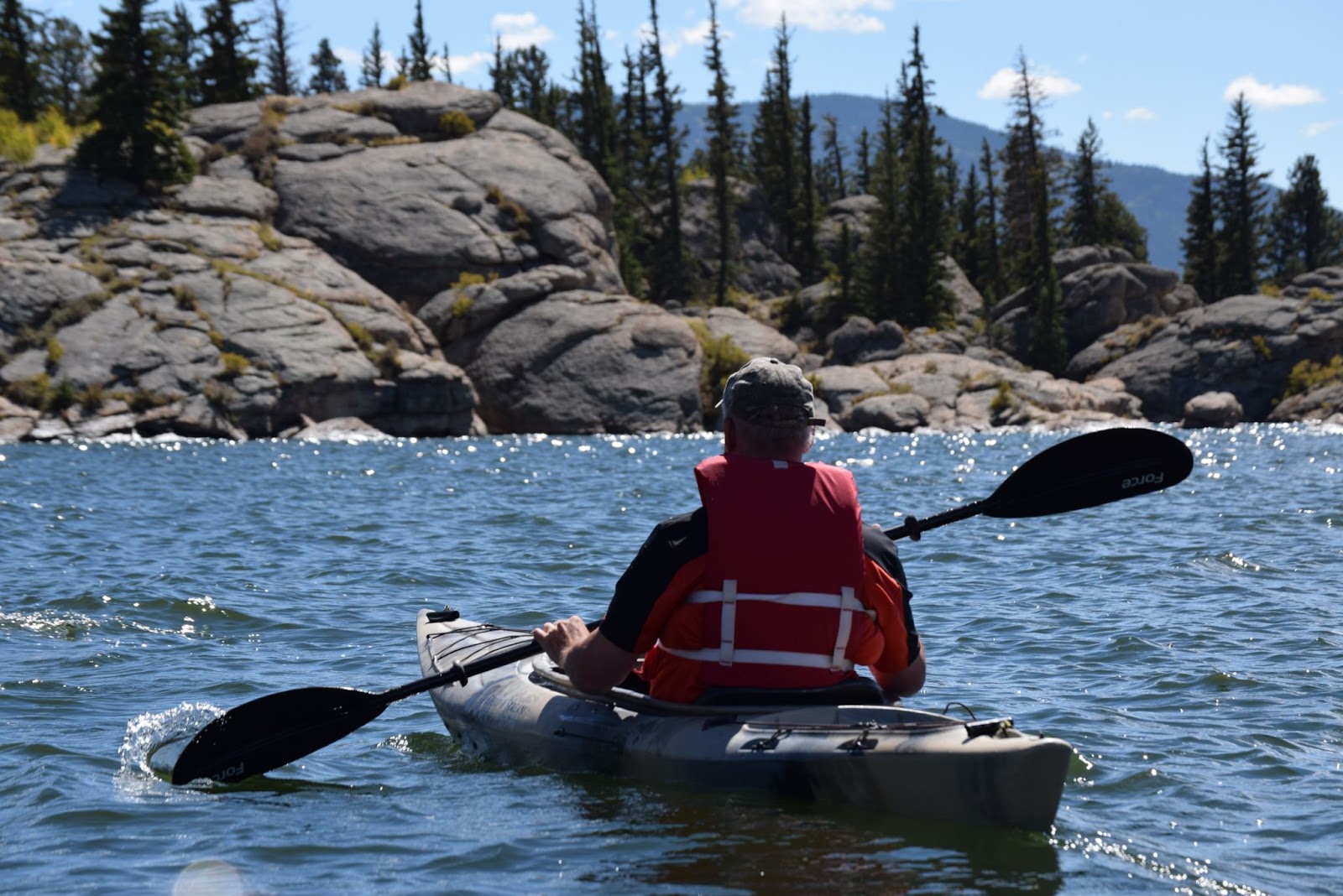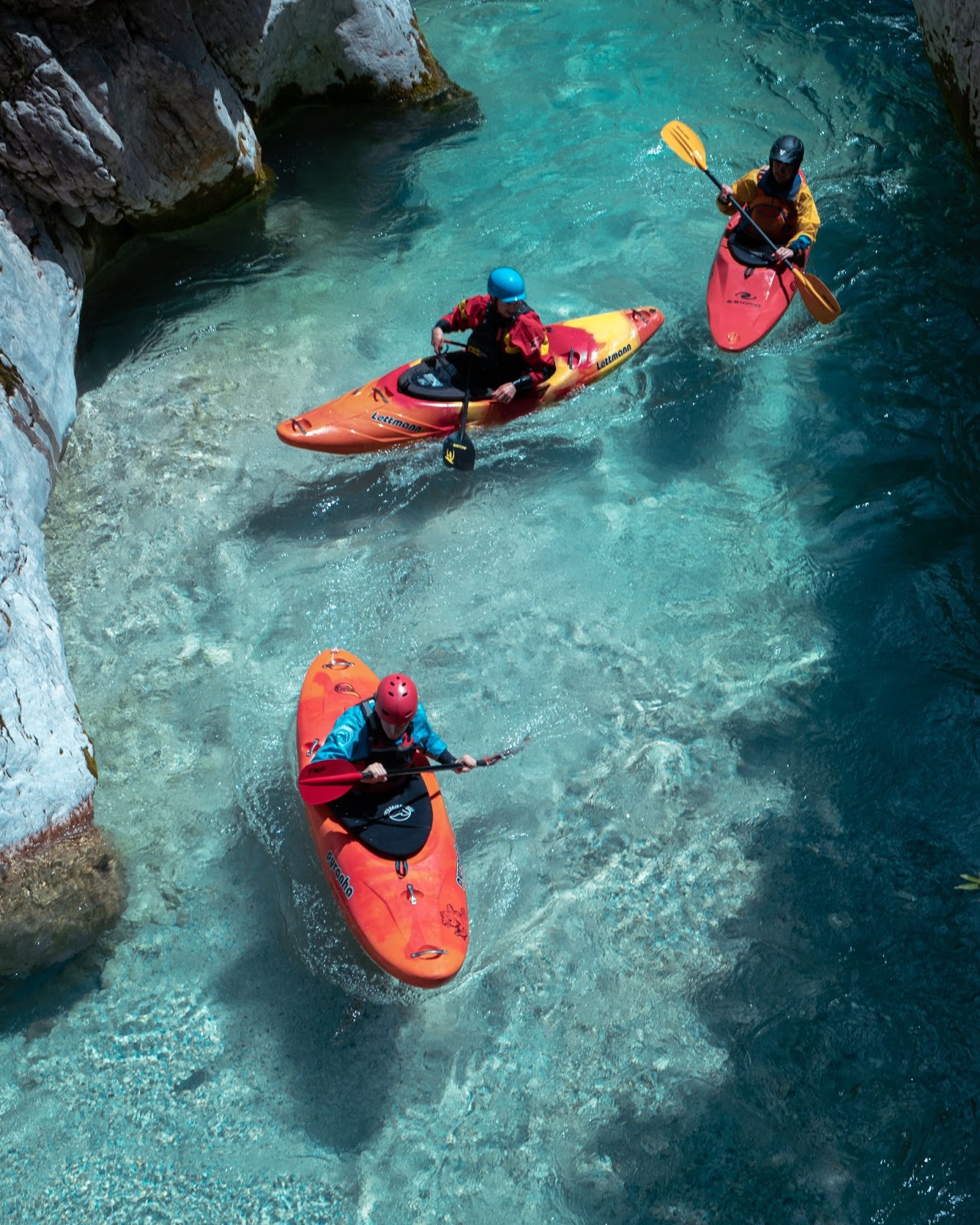Are you curious about the possibilities of kayaking without a license? Then you’ve come to the right place!
You’ll learn how a kayaking license can be beneficial, but it is not required for every person. Whether you are planning on enjoying the majestic outdoors or taking on a thrilling adventure, we have all the information you need to ensure your kayaking experience is nothing less than perfect.
It is important to understand the legality of going kayaking without a license. Kayaking is a popular recreational activity enjoyed by people around the world. However, depending on where you are kayaking, you may need a license to operate a kayak.
For example, in some parts of the United States and Canada, you will need to have a special license or permit allowing you to use certain waterways. Additionally, many inland lakes and rivers require permits for paddlers in order to protect the natural environment and preserve aquatic habitats.
When planning on going kayaking it is always important to research the laws regarding watercraft use in the area where you are headed. This simple step will save time and heartache later down the line if you get pulled over for paddling without a proper license or permit.
What is Kayaking?
Kayaking is an outdoor activity involving the use of a kayak—a small, open-topped vessel propelled by paddling with a double-bladed paddle. It is usually done on lakes, rivers, and in sheltered bays or estuaries of larger bodies of water. Kayaking has become a popular sport for recreational purposes since the mid 19th century and its origins can be traced back to ancient times. Kayaks come in many shapes and sizes; from traditional kayaks that are generally narrow boats propelled by hand or foot, to sit-on-top kayaks in which the user sits above the boat and propels with a double paddle. Contemporary advances have led to inflatable bladders allowing for compact storage. Most necessary safety equipment such as life jackets or helmets must be worn when kayaking; however the exact regulations vary depending on your region.
In some areas you may require certain safety qualifications or even a license to go kayaking–it’s important you familiarise yourself with local regulations before going out on the water. With appropriate knowledge and skills, though, kayaking can be an enjoyable pastime enjoyed by people of all ages!
What is a License?
A license serves as proof that you have been trained and certified in the safe and responsible operation of a kayak. Depending on where you are located, this license may come in the form of a Coast Guard Certification, a state-issued Boater’s License, or some other form of certification.
Regardless of what it may be called, a license is often required for those wishing to operate any type of watercraft on oceanic waters or inland waterways, including kayaks. This is to ensure that those operating the watercraft have received proper instruction regarding safety, navigation rules, boat etiquette and laws specific to the area. A valid license must be presented upon request by any authorized officials such as law enforcement officers, game wardens or Coast Guard personnel. Even if your state does not require a boating/kayaking license to operate a kayak on open waters (i.e., lying in more than one jurisdiction), some local rules may still require it. To be certain whether or not you require a boating/kayaking license to operate your kayak on open waters lies near you, always check with your local authorities or visit your closest Coast Guard office before taking off with your craft into open waters!
What Are The Requirements For Kayaking?
Kayaking is an activity that can be enjoyed by virtually anyone, regardless of skill level or experience. However, there are a few key requirements you should be aware of before going out on the water. Whether you need to obtain a permit or license, or certain safety equipment is required for kayaking, understanding and following these regulations will not only help keep you safe but also ensure that you’re following the proper rules and laws related to kayaking in your area.

In some states or countries, a license may be required to operate boats with an engine larger than 10 horsepower, as well as sailboats over certain sizes. This means if you’re using a motorized kayak for fishing or long-distance paddling, it’s possible (but not always necessary) that you might need a specialized boating permit. It’s best to check with your local authorities before heading out on your kayak adventure. Generally speaking though, those who paddle recreational kayaks will not require any kind of special licensing or permits in most areas of the US. In addition to licenses and permits though, other requirements still apply when it comes to safety on the water. Depending on where and when you’re paddling in open waters like lakes and oceans – always wear a life jacket at all times; this type of personal flotation device (PFD) should fit securely around your body for optimum protection against obstacles like strong currents and choppy waters. Also make sure that any gear-filled boat like yours are equipped with proper lighting systems for nighttime paddling – including both stern lights (green) and bow lights (red).
Lastly it’s important to note that each state will have different regulations when it comes to whether and how much lifejackets are needed per person based on age– so make sure and include lifejackets as part of your packing checklist no matter where in the world your adventures take you!
What Are The Legal Requirements For Kayaking?
Kayaking is a great way to enjoy the outdoors and explore nature. Before you grab your paddle and head off on your adventure, it’s important to make sure that you understand the legal requirements for kayaking. Depending on the state or country you are kayaking in, there may be laws regarding what type of kayak and safety equipment you must have as well as licensing requirements. Most states do not require that an individual obtain a license in order to use a recreational kayak ($250 or less value). However, if the kayak is priced above that amount, certain legal regulations may apply. As such, it could be wise to check with the local government agency for specific details about obtaining a license for use of a more expensive kayak before employing it into your adventures. In addition to potential requirement for licensing in certain states regarding pricier models of recreational fishing craft, other safety equipment and registering requirements may apply when taking out any type of vessel over bodies of water – including rivers and lakes. Certain regions may also have specific rules about navigational markers or areas restricted from use due to resource preservation efforts. It is certainly wise for any smart adventurer to research these rules beforehand in order to ensure that they are compliant with all applicable regulations when out participating in their favorite activity.
What Are The Benefits of Kayaking Without a License?
Kayaking without a license has many advantages and is a great way to experience the outdoors and get some exercise while spending quality time with friends and family. This type of boating is becoming increasingly popular as it allows people an opportunity to enjoy the water without having to deal with the costs or paperwork of licensing. Some key benefits of kayaking without a license include:
1. Cost savings: By not having to purchase a license, you can save yourself both time and money. Whether it’s purchasing the actual boating license or dealing with the hassle of paperwork that goes along with obtaining one, avoiding getting a license will free up your money for other things.
2. Time flexibility: With no need to go through bureaucratic red tape in order to obtain a license, you can paddle when it suits you (as long as local laws are adhered to). This means that if you are visiting an area for vacation, or decide last minute that you want to go out on the water for some relaxation, you can do it without having to plan ahead or obtain any legal documentation first.
3. Relaxation: Perhaps one of the greatest benefits of kayaking without a license is the increased level of relaxation it gives users as they are removed from common distractions such as traffic noise and city bustle. Assembling your kayak by hand in peaceful nature setting can be immensely calming – removing any worries about deadlines associated with obtaining a legal permit prior to venturing out onto the water.
4 No limit on distance: Without any bureaucracy involved in obtaining licenses for longer trips across multiple jurisdictions, paddlers are free travel unrestricted distances (as long as they adhere too local laws). This gives more freedom when deciding where kayakers venture out too – making more distant destinations accessible at their leisure without extra restrictions such as border crossing fees or licensing rules hindering them from further exploration.
Can You go Kayaking Without License
Kayaking without a license can be dangerous for both experienced and inexperienced boaters. Depending on the type of water you wish to kayak in and the laws of your state, kayaking without a license can result in legal consequences. It is important to know the legal requirements, risks, and safety issues that face kayakers when they are operating their vessels without a license.

When kayaking without a license, it is essential that you take safety precautions to protect yourself and others from potential harm. Being in open water exposes an individual to numerous risks such as extreme temperatures, choppy water conditions, strong currents, submerged debris or rocks, inclement weather conditions, strong wind gusts and hazardous marine life. Additionally, an operator must also be aware of navigational buoys used for marking channels; failure do observe these markers could cause an accident with other boats nearby.
You should also make sure that your vessel is adequately equipped with the essential safety gear such as adequate flotation devices for every passenger on board; these devices must have bright colors so they can be easily spotted. Other safety items include a whistle or horn which should be loud enough to alert other boaters within the vicinity and visual distress signals if you find yourself in an emergency situation. Apart from this equipment checks it is important that you come prepared with knowledge on how to operate a kayak safely including being aware of basic sailing rules on when overtaking or leaving another boat’s path especially when using inland waterways. Even though it may not be required by law in some areas, it may be beneficial for unlicensed kayakers to attain certification demonstrating their knowledge of and adherence to navigational rules beforehand because this information can help prevent accidents due accidents occurring due lack of knowledge resulting in property damage or injury incurred during operation.
In conclusion, most states require kayakers to obtain a license when operating a kayak. This is done to ensure that the person is adequately prepared and knowledgeable on the basics of kayaking, as well as state laws and regulations. A license can provide information on boating safety, access to navigable waterways, and other essential safety hazards. Ultimately, it is important to research your state’s particular laws before hitting the water in a kayak. In some areas, there are alternatives that may allow you to go kayaking without a license.




No Comment! Be the first one.